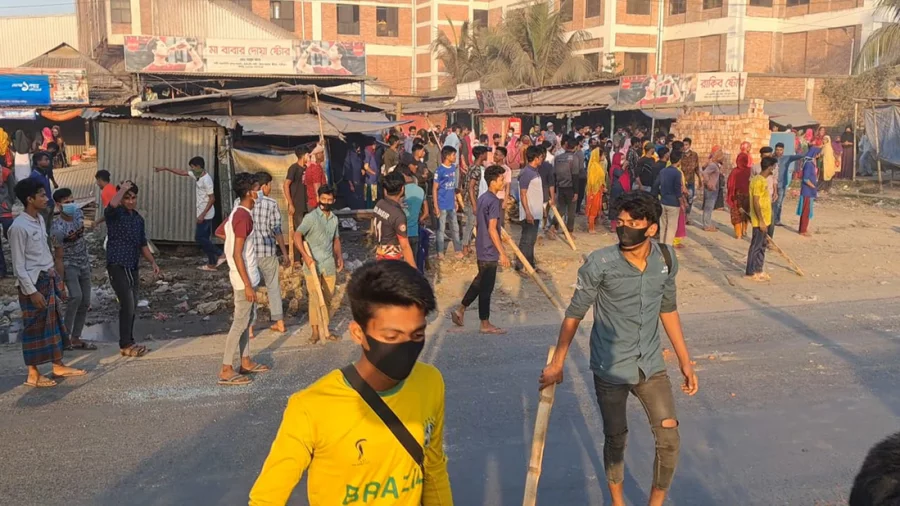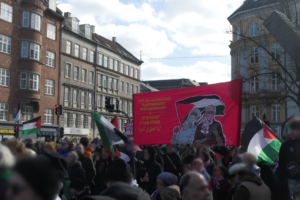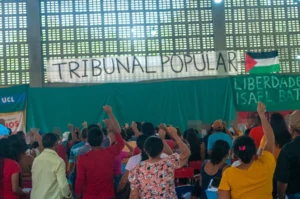
Workers clash with the police in Gazipur and Ashulia in Bangladesh
Featured image: Workers in a protest in Gazipur, Bangladesh. Source: Dhaka Tribune
Workers of a yarn factory AA Yarn Limited clashed with the police on the 9th of March in Sreepur, Gazipur district of Bangladesh, demanding higher wages. The workers blocked the Dhaka-Mymensingh highway, denouncing that the factory bosses had ignored the demands of the workers for better pay despite multiple efforts from the workers to negotiate. The police repressed the workers with tear gas, rubber bullets and stun grenades, and the workers as a response defended the protest by throwing bricks at the police. It is reported that there was some injured among the workers as well as passers-by due to the police brutality.
The yarn workers of the factory earn around 6,000 Tk (around 55 US Dollars) a month, and the protesters denounced that they are not able to live with this wage and that the wages had not been raised even to the new minimum set in November. In November, there were large protests of garment workers, who demanded that the minimum wage of the garment workers are raised from 8,000 Tk to 23,000 Tk. The government refused to raise the wage to the demanded level, and set 12,500 Tk (114 US Dollars) as the new monthly minimum wage. In November, these protests were also met with severe repression and police brutality, with hundreds arrested and at least two workers murdered by the police shooting at the protesters with live ammunition.
On the 11th of March workers of Sterling Styles Ltd protested in Jamgora, Ashulia, demanding overtime pay and paid holidays among other things. The factory boss said the factory operates according to the labor laws of Bangladesh and commented that “For the last three days our workers have been agitated with unreasonable demands, including payment of 11 days of annual leave as well as day-offs on every public holiday.” He said that they already give days off during Ramadan and that it is unreasonable to demand get paid also for these days. According to the boss, the workers had attacked six low level bosses and injured them. The workers had also thrown bricks at the police, who repressed the protest with tear gas. According to the media, a representative of the trade union Garments Sramik Oikya League said that the demands of the workers have “no legal justification” and that the union would not get involved.
These statements calling the demands unreasonable reflect on the conditions of the garment workers in Bangladesh, which is a semi-colonial and semi-feudal country with a large garments industry and where many clothes for imperialist monopolies, such as H&M, Zara, Lidl and Primark are produced. We wrote in November: “This struggle of the Bangladeshi proletariat against garment monopolies of the bureaucratic capital is part of the struggle of the people against semi-feudality and semi-colonialism and the bureaucratic-big-landlord-dictatorship. Its not just a struggle for an increasing of the wage, but it is for national liberation, against the oppression and subjugation of the country to the imperialists…” These local clashes show that the situation continues as prone to explosion.

